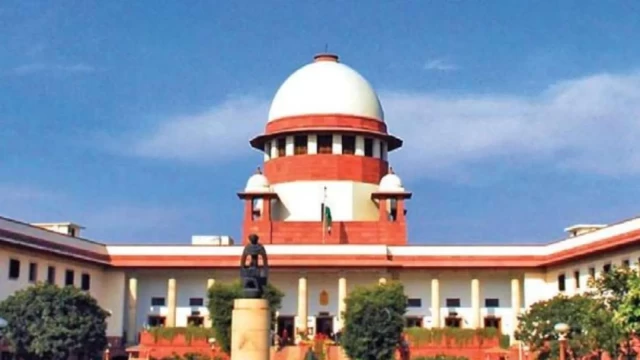Today, the Supreme Court will consider multiple petitions requesting a pause on the implementation of CAA Rules
- Posted on March 19, 2024
- Legal
- By Arijit Dutta
- 445 Views
The Supreme Court is scheduled to review a set of petitions requesting a halt on the enforcement of the Citizenship Amendment Act (CAA) Rules. This comes amidst debates over the constitutional legitimacy of the Act, with various parties seeking clarity on its implementation.
 Image Source -www.india.com
Image Source -www.india.com
Amidst
fervent legal debates and societal concerns, the Supreme Court of India gears
up for a pivotal session today. At the center of attention is a cluster of
petitions, each clamoring for a definitive stance on the implementation of the Citizenship
Amendment Act (CAA) Rules. These petitions, slated for review by the apex
court, collectively advocate for a temporary suspension of the enforcement of
CAA Rules until the constitutional validity of the Citizenship (Amendment) Act
of 2019 is decisively adjudicated.
Chaired
by Chief Justice DY Chandrachud, accompanied by Justices JB Pardiwala and Manoj
Misra, the Supreme Court is poised to navigate through the intricate legal
arguments and social ramifications surrounding the contentious CAA. Notably,
the petitioners represent a diverse spectrum of interests, each articulating
nuanced concerns about the implications of the CAA Rules on the fabric of
Indian citizenship and the rights of migrant communities.
Senior
advocate Kapil Sibal, appearing on behalf of the Indian Union Muslim League
(IUML), delivered impassioned submissions, underscoring the irreversible nature
of Indian citizenship once granted to migrants from neighboring countries such
as Pakistan, Afghanistan, and Bangladesh. Sibal's plea for an expedited hearing
underscores the urgency with which these complex legal issues demand
resolution.
The backdrop against which these legal proceedings unfold is marked by the protracted timeline of the CAA's legislative journey. Initially passed by the Indian Parliament nearly four years ago, the Act has been the subject of intense scrutiny and debate, both within legislative chambers and across the broader societal landscape. However, it was only on March 11 that the Centre notified the associated CAA Rules, triggering renewed legal challenges and public discourse.
Also Read: Flipkart's Valuation Witnesses Rs 41,000 Crore Dip Over Two-Year Period| KNOW WHY
At
its core, the Citizenship Amendment Act aims to extend Indian citizenship to
persecuted non-Muslim migrants from neighboring countries, including Hindus,
Sikhs, Jains, Buddhists, Parsis, and Christians, who sought refuge in India
before December 31, 2014. This selective criteria based on religion has been a
focal point of contention, with critics arguing that it undermines the secular
principles enshrined in India's Constitution and exacerbates divisions within
the social fabric.
As
the Supreme Court convenes to deliberate on these weighty matters, the outcomes
of these proceedings hold profound implications for the trajectory of
citizenship laws in India and the treatment of migrant communities. The eyes of
the nation are fixed on the apex court, awaiting its considered judgment on the
fate of the CAA Rules and the broader contours of Indian citizenship.




